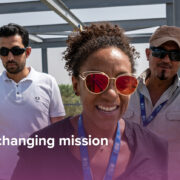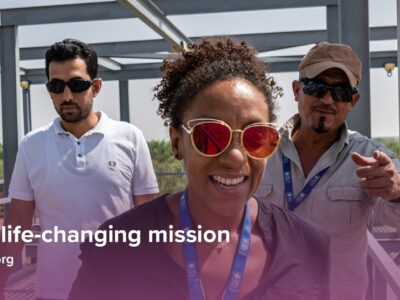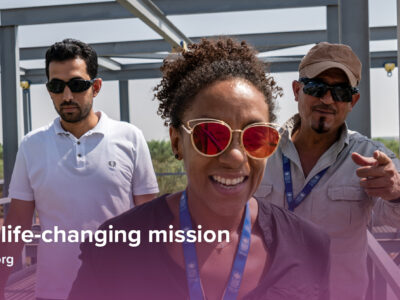
Scope of work
The ASCEND Kenya program is soliciting a consultant to conduct post-MDA independent coverage evaluation surveys (ICES) following MDA implementations for Schistosomiasis in 8 wards in four sub-counties in Homabay and Migori Counties.
The key deliverable under this service shall be an MDA coverage evaluation survey report.
To aid in the planning, implementation and reporting of this service, a number of steps have been suggested. They include (but are not limited to).
- Consultations with MOH to determine Integrated Coverage Evaluation Survey [ICES] needs and designing the implementation approach
- Developing ICES protocol- including data collection methodology, data capture tools, training materials, survey plan, team formation and budgets.
- Internal review and approval of the evaluation of protocol
- Ethical approvals
- Training of survey team
- Field data collection
- Data analysis and reporting
- Dissemination of findings
ASCEND program implementation adhered to the MOH and WHO guidelines, and thus tools developed have to conform to the minimum WHO standards and aligned to the MOH standard policies and guidelines.
The overarching goal of ICES is to evaluate program performance (by validating program coverage against the CDD reported coverage). Additionally, program reach for a number of interventions- including behaviour change and communication campaigns (BCC/IEC), Leave No One Behind (LNOB), Knowledge Attitude and Practices (KAP) shall be assessed.
Background:
Accelerating the Sustainable Control and Elimination of NTDs (ASCEND) is a £200 million investment from the UK government’s Department for International Development (DFID), to advance the impact and sustainability of national programmes tackling neglected tropical diseases (NTDs). To be implemented between September 2019 to March 2022, ASCEND comprises of two lots – one focusing on South Asia, East and Southern Africa (lot 1) and the other on West and Central Africa (lot 2).
ASCEND lot 1 is implemented by a consortium of technical partners led by Crown Agents, including Abt Associates, Oriole Global Health and the Royal Tropical Institute. Central to ASCEND 1’s approach is close collaboration with National Governments and other implementing partners, to enhance national approaches to NTD control and elimination. ASCEND’s goal is to contribute to the global goal of reducing the burden of targeted NTDs so that they are no longer a public health problem.
In Kenya, ASCEND focuses on three NTDS, which include Schistosomiasis, Visceral Leishmaniasis and Lymphatic Filariasis – MMDP only anchored on the following broad objectives:
Objective 1: Relevant aspects of the health system are strengthened to ensure sustainable delivery of NTD control and elimination activities
Objective 2: Increased coverage of preventive chemotherapy for NTDs to lower the burden of active disease**
Objective 3: Increased coverage of curative treatment and morbidity management and disability prevention services for NTDs
Objective 4: Increased coverage of hygiene promotion and behaviour change communications to disrupt the transmission of active disease
Objective 5: Increased knowledge and evidence on the effective response to NTDs for monitoring, evaluation and learning
DFID has contracted Crown Agents together with its consortium partners to act as Fund Manager for ASCEND in Kenya. Therefore, Crown Agents is working with the Ministry of Health to support the mass drug administration of Schistosomiasis, as described in the below sections.
Rationale
Monitoring mass drug administration (MDA) coverage is an integral part of the ASCEND program to ensure quality delivery of intended packages to all at-risk populations. The program has put in place key measure to ensure sustained optimal coverage, including standardized MDA implementation tools, training packages, supportive supervision, and review of MDA uptake-internally (by supervisor/implementor) and externally (by independent coverage survey).
Independent coverage evaluation surveys (ICES), also commonly known as post-MDA coverage surveys, are to be conducted after MDA implementation to validate reported coverage and determine program reach.
In Kenya, MDA is expected implemented for Schistosomiasis where PZQ distribution and Behaviour Change Communication (BCC) interventions are to be provided to approximately 342,000 people. Ascend program intends to support the MOH to evaluate the program performance and determine factors influencing uptake of these interventions. The additional objectives in Kenya include;
- To determine why individuals did, or did not, take part in the MDA by ingesting the drug;
- To identify adverse and serious adverse events (SAEs);
- To capture information about the knowledge, attitudes, and practices (KAP) of community members around NTDs.
- To gather vital programmatic information on BCC/IEC, LNOB, Gender and many others
Service:
Implementation of Independent coverage evaluation surveys (ICES) following mass drug administration (MDA)
The ASCEND program has supported the implementation of MDA for Schistosomiasis in 8 wards in two sub-counties in the Homabay and Migori Counties. As part of the routine program evaluation, this service will seek to evaluate program performance. One of the key objectives of this service is to validate reported MDA coverage. Thus, the ICES will be a population-based survey. Additionally, through this service, the program seeks to understand the program reach (and related influential factors) by assessing the BCC and LNOB.
Cross-cutting support
Leave no one behind
ASCEND is committed to implementing a ‘leave no-one behind’ (LNOB) approach across all programme activities. This means that all government partners and implementing partners must also demonstrate a commitment to leaving no-one behind in programme design, implementation, monitoring and evaluation. Leaving no-one behind means putting those who are most at risk of falling behind first. ASCEND’s commitment to leaving no-one behind is based on the following four principles: a fair opportunity in life; everyone counts and must be counted; respect for the voice of those who are furthest behind; and ensuring equitable access to health services. Personnel and consultants working on ASCEND should demonstrate an understanding of how the LNOB principles outlined above could be integrated into their work.
Water sanitation and Hygiene and Behavioral change communication
Since the MDA are conducted within COVID-19 context, there is a need to build in health communication strategies that promote uptake of MDA interventions and prevention of COVID-19. A communication and community engagement strategy has been developed to address all the issues concerning the prevention of the spread of the disease in addition to health education for health workers and community members who are involved in MDA intervention delivery. The strategy has several methods of dissemination of the information to the targeted audiences to ensure maximum penetration of the information in the community. The ICES provides an opportunity to assess the reach and also to identify the most effective strategy.
Key Personnel
1. Team Leader
At least 5 years’ experience in evaluating intervention coverage with different programs. Knowledge of NTDs programming is crucial. The team leader will provide overall technical leadership in designing ICES protocol and tools, training and survey preparation, survey implementation and reporting for ICES.
2. Field Supervisor
At least 5 years experience in providing field leadership and working with survey teams. Capable of organizing work and solving field problems. Understanding of local health care delivery mechanism, local cultures, local government administrative structures is important.
The field supervisor will work with the survey team on daily bases to ensure proper sampling in the field and proper interviewing as per protocol. He/She will be responsible for resolving field problems.
3. Data Manager/Statistician
At least 5 years demonstrated evidence is data collection tools development, field data collection, data cleaning and analysis. A degree in statistic, epidemiology and or public health is required. The data manager/statistician will be responsible for designing the sampling tools, ensuring correct data entry into the electronic data capture tools, running daily data check and cleaning. At the end of the survey, she/he will run final data analysis and provide clean outputs (as per the ICES reporting template).
4. Survey team (to be recruited based on survey size)
The number of data collectors/interviewers/survey assistants will be recruited once the ICES need is determined, and the approach agreed upon by MOH. This is the first step in preparing for ICES. Once agreed, the number of IUs to be surveyed, and agreed number of survey days will determine the number of interviewers to be recruited. The interviewers are responsible for administering the ICES questionnaire.









Comments